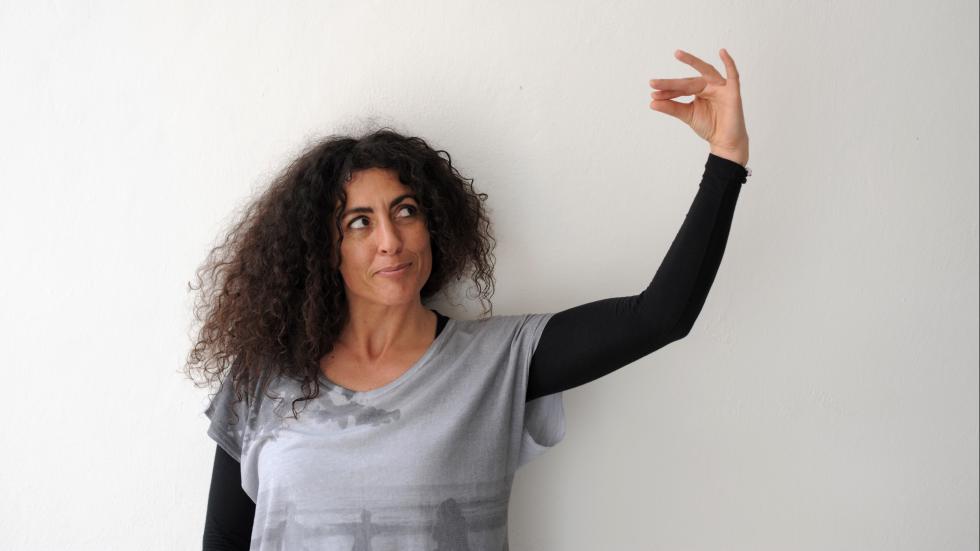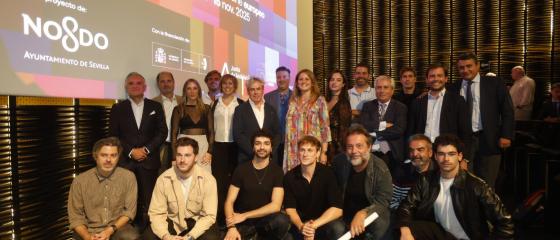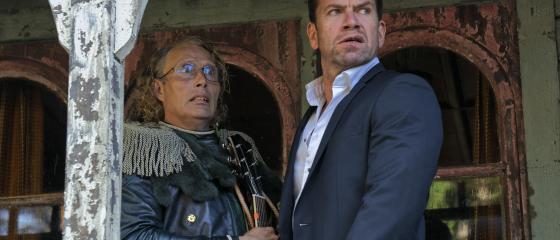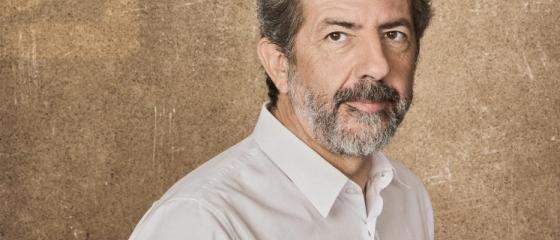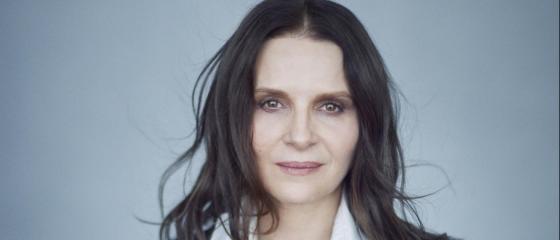- The film festival will host exhibitions, talks, workshops and a film journalism laboratory in Seville thanks to partnerships with institutions and professional associations
- A series of workshops to be held in La Macarena, Las 3,000 Viviendas, Los Carteros and Torreblanca, to promote neighbourhood identity and pride through audiovisual narrative
Within the framework of the festival, Seville European Film Festival’s fringe activities have become a vital component that enhances and enriches the experience for both audiovisual professionals and the general public. In addition to film screenings, this year's festival, scheduled from 8 to 16 November, has programmed learning and cultural exchange activities, ranging from exhibitions and book presentations to talks, master classes and workshops and a film journalism laboratory.
This year, the Official Selection jury includes two figures behind the legendary The Mission: producer David Puttnam and star Jeremy Irons.
This momentous occasion had to be savoured, so on 13 November at the Cervantes Cinema they will explore together ‘The art of creating an iconic work’. The two will share their experiences with the audience, from the challenges they faced in the film’s creative process to its cultural impact over the years. Both will offer their perspective on the struggle between faith and colonisation, as well as the ethical dilemmas that arise throughout the narrative. A few days earlier, on Monday, 11 November, David Puttnam will lead another activity in collaboration with Fundación Cajasol. In the talk ‘Music in film’, the producer will draw on his vast cinematographic experience and discuss how soundtracks can elevate the narrative and emotions on the screen, focusing on his collaboration with Vangelis in Chariots of Fire, Giorgio Moroder in Midnight Express and Ennio Morricone in The Mission.
A key strength of the Festival's fringe activities is the opportunity they provide emerging filmmakers and students to open educational doors. With this in mind, the programme includes a wide range of master classes and workshops led by industry experts. Admission to these activities is free until the venues reach capacity.
After his time at the Berlinale and Cinéma du Réel, SeFF welcomes the Mozambican director, producer and cinematographer Inadelso Cossa, whose talk ‘The art of telling the story of a war’ will discuss topics ranging from sociological theory to development linked to independence movements. The event will take place on Monday, 11 November in the Department of Sociology at the Pablo de Olavide University.
On the same day, at the IES Néstor Almendros in Tomares, film expert Julia Cortegana will give a master class on ‘The art of preserving celluloid’. During the event, she will focus on archiving and digitising photosensitive materials to preserve cinematographic heritage. On Tuesday, 12 November, at the Faculty of Fine Arts, French documentary filmmaker Yolande Zauberman will lead the talk ‘The art of filming light in the dark’ with Patricia Ortega, director of Mamacruz and representative of the Fundación Triángulo.
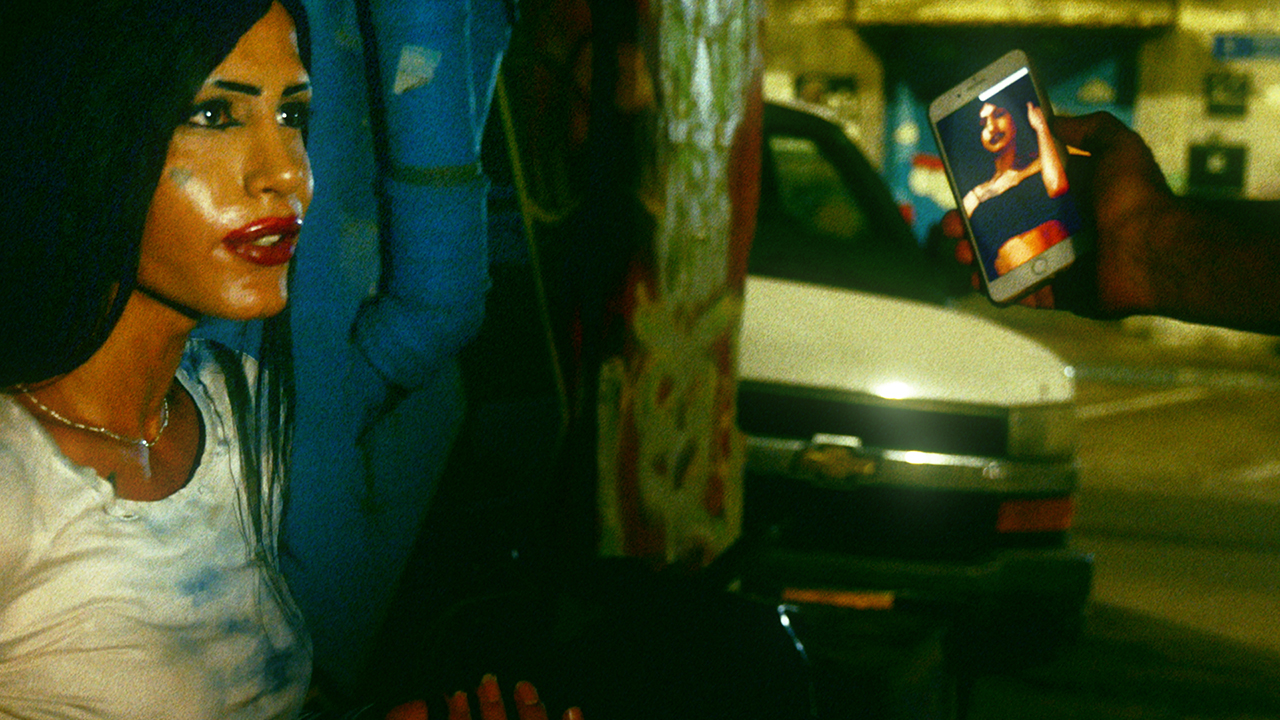
La belle de Gaza
The event will focus on Zauberman’s documentary The Belle from Gaza, which follows her journey through Tel Aviv during which she meets trans women who have fled their homes and communities in search of refuge and acceptance.
The Tomares high school will host two more talks on Tuesday, 12 November. In the first, ‘Esteban Crespo: the master of suspense’, the director himself will share his narrative approach and discuss challenges associated with the creative process. In the second, Filmin founding member Jaume Ripoll will talk about ‘The art of loving cinema’.
Moreover, from 8 to 30 November, CICUS will exhibit a selection of works by one of the artists who has shaped animated film, Regina Pessoa. On the exhibition’s opening day, the artist will give a talk entitled ‘The art of playing with light’. Her remarkable work, rich with autobiographical elements, has received numerous awards at international festivals. The exhibition ‘Trazos de luz’ explores her unique career, which began with the short film The Night (1999), the first of her trilogy on childhood, and continued with Tragic Story with a Happy Ending (2006) and Kali the Little Vampire (2021). The exhibition invites visitors to discover the artist’s sensitive universe through a selection of pieces from her private collection.
Benito Zambrano and 25 years of Alone
On Tuesday, 12 November, the Andalusian Film Academy will take its ‘Script and Directing Meet Ups’ to CICUS, which is in collaboration with DAMA in 2024 and 2025. For this edition of the Festival, the Sevillian director Benito Zambrano will give a master class ‘The mistakes I made and you shouldn't make in your first film’. The filmmaker will share his insights on filmmaking in conjunction with the 25th anniversary of his iconic film Alone. Set in Seville, the feature film explores loneliness in old age and family relationships and won several Goya awards, including Best Original Screenplay, Best Debuting Director, Best New Actress for Ana Fernández, Best New Actor for Carlos Álvarez-Nóvoa and Best Supporting Actress for María Galiana. A restored version of the film will be screened as part of the Essentials section.
On Wednesday, 13 November, again at CICUS, Manuel Sicilia will lead the masterclass ‘How to turn a Christmas campaign into a phenomenon’. In this public event, developed in collaboration with the University of Seville, he will talk about the creative process behind the three Nuestra Navidad short films, inspired by the locally famous 1994 Christmas carol, which forms part of Andalusian popular culture and the identity of Radio y Televisión Andalucía (RTVA).
The Greek director Asimina Proedrou will be at the IES Néstor Almendros in Tomares with the master class ‘The art of filming behind the haystacks’. Her film Behind the Haystacks – in the New Waves section – explores the corrupt and patriarchal society of a lakeside village on Greece’s northern border. Also on Wednesday, 13 November, the Swiss-Polish director Emilie Girardin will give a talk on ‘The art of writing dialogues through improvisation’ at the Seville Royal Academy of Literature in collaboration with Loyola University. The filmmaker will share how she uses collective creativity tools and autofiction in film production.
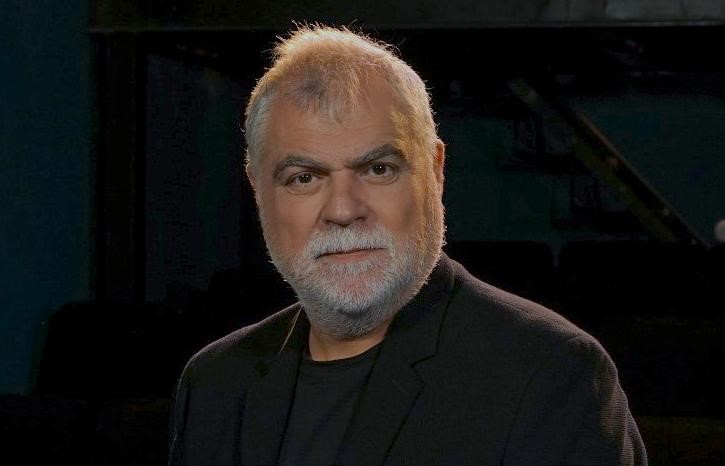
Benito Zambrano
Neighbourhood Pride
On Friday, 15 November documentary filmmaker and musician Manuel Jiménez will take centre stage with his talk ‘The art of showcasing Las 3,000 and my beautiful neighbours’ at CICUS. The well-known TikToker will share his experience and skills, explaining how he has managed to capture the essence of Las 3,000 Viviendas – his neighbourhood and community – through his work.
Inspired by his audiovisual approach to neighbourhood life based on pride and identity, the Festival has organised the workshop ‘My neighbourhood in docu’. This project, led by the Andalusian documentary filmmaker María Flores and organised in collaboration with the Seville City Council, aims to offer inhabitants of four neighbourhoods in Seville – La Macarena, Las 3,000 Viviendas, Los Carteros and Torreblanca – the chance to create two-minute short films about charismatic characters from their neighbourhood. Shorts will be filmed using accessible tools, such as smartphones.
The day's fringe activities will conclude with ‘The art of dancing memory’ by the artist and independent filmmaker José Luis Tirado, author of documentaries and video creations on social rights, migration, precariousness, the environment and historical memory.
The short films will be screened at the Palacio de los Marqueses de La Algaba.Cinema is not only watched and listened to, it is also documented and read. Two book presentations have been programmed during the Festival with author meet-and-greets.
On 11 November, Gerardo Sánchez, known for his work as the director of the RTVE programme Días de Cine, will present his book Memorias de un cinéfilo sarnoso at the bookshop Librería La Fuga, an intimate and nostalgic journey through his life, where for him, cinema is not a pastime, but a way of life. On Friday, 15 November, the journalist Luis Álvarez Borrero and the philologist and documentary maker Pedro Álvarez Molina will present Alberto Rodríguez, film director. The event will take place at the Boteros bookshop and will be moderated by Rafa Cobos, a regular scriptwriter for the prominent Sevillian filmmaker. This book has been recognised as the Best Film Book at the Andalusian Film Writers’ Association (ASECAN) Awards, underscoring its relevance in the literary and cinematic realms.
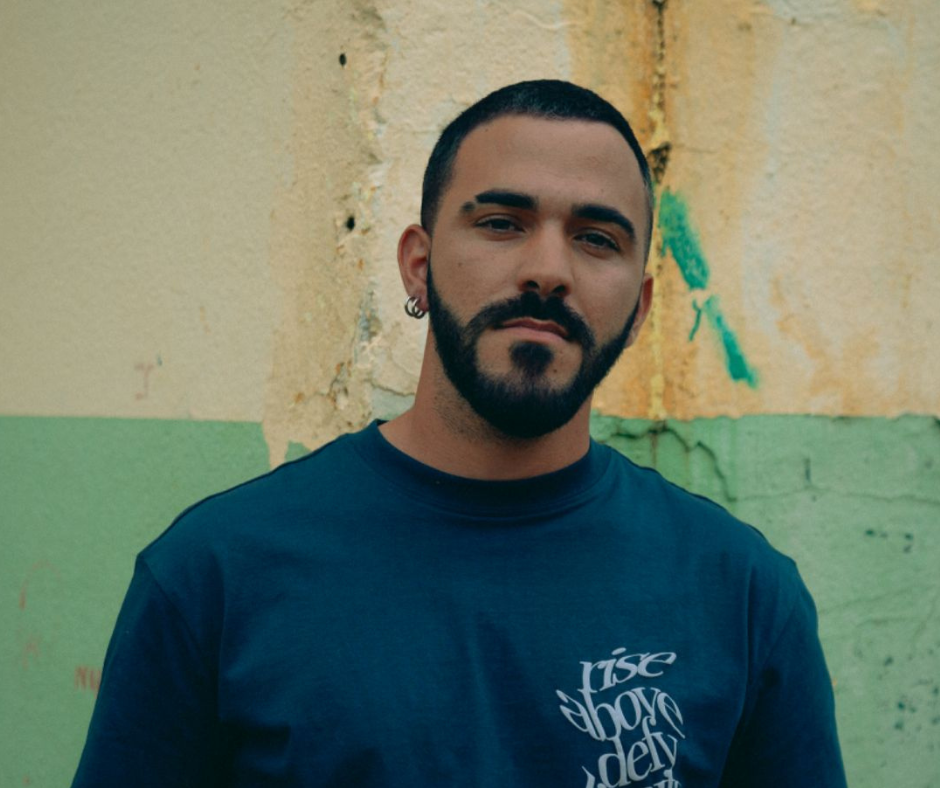
Manuel Jiménez
This year’s programme also includes the film journalism laboratory in collaboration with the University of Seville’s Faculty of Communication. Students and graduates interested in the audiovisual sector and cultural journalism are invited to participate. This initiative seeks to promote local talent and offer personalised training during the festival, as those selected will work on interviews and reviews that will be published on SeFF’s website. Film journalist, Alfonso Rivera, will lead the project with input from a group of Spanish cultural journalism experts, who will focus on writing reviews, podcasting and interview techniques.
Factoría Cultural will show Dilili in Paris by Michel Ocelot for primary school pupils on Tuesday, 12 November and The Lost King by Stephen Frears for secondary school pupils, Baccalaureate and vocational training students on Wednesday, 13 November. The Festival`s educational programme will also visit Seville 1 penitentiary centre in collaboration with the Aula de Cine de Solidarios (Solidarity Film Classroom), which will screen Guillermo Rojas’ Alone in the Night on Friday, 15 November. The feature film, set in the context of the coup d’état of 23 February 1981, tells the story of a group of labour lawyers who are forced to go into hiding due to the political uncertainty of the time.
For yet another edition, the Festival partners with institutions and professional associations to take the world of cinema to different spaces in the city thanks to support from the Andalusian Film Academy, DAMA, Fundación Cajasol, the Portuguese Embassy, the University of Seville through the faculties of Fine Arts and Communication and the Centre for Cultural Initiatives (CICUS), the Pablo de Olavide University and Loyola University, Néstor Almendros Secondary School, Fundación Triángulo, the bookshops La Fuga and Boteros, Cervantes Cinema, the Royal Sevillian Academy of Literature, Solidarios and Factoría Cultural.



